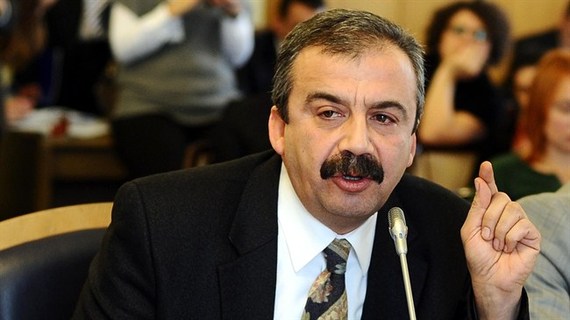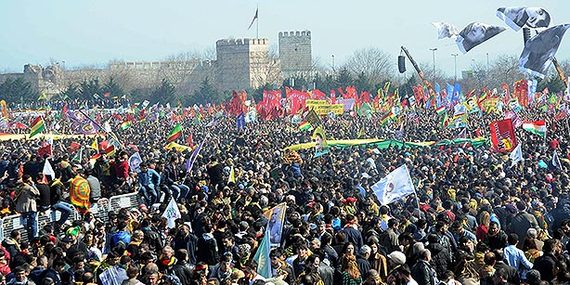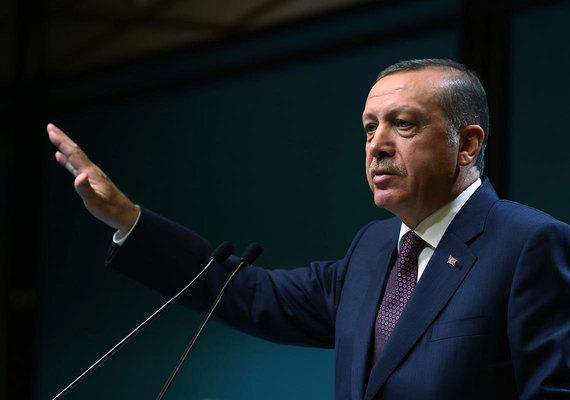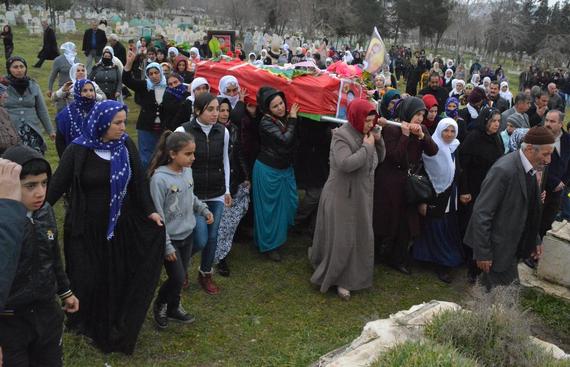'They will lift our [parliamentary] immunities. ... And we will surely be detained. In my personal view no deputy of the Peoples' Democratic Party, the HDP, feels any anxiety or fear of prison. Neither do I. ... First, by forcing parliamentary work they will give priority to the files that have to do with our immunities and then vote to lift them. Maybe we will not be taken away by 'white Renault' [a notorious symbol of summary executions], but the courts will in their first session rule for detention. That's what will happen. But, as to the question of whether this is what the country really needs or whether it will lift the country out of the quagmire, my answer is negative.'
In an interview with independent website T24, this was the gloomy prediction offered by the pro-Kurdish Peoples' Democracy Party (HDP) deputy Sırrı Süreyya Önder, who was part of the delegation visiting imprisoned Kurdistan Workers' Party (PKK) leader Abdullah Öcalan during the now-collapsed peace talks.
As the Kurdish conflict with severe measures - such as curfews in Kurdish towns, operations and constant clashes between the Turkish Armed Forces and the PKK - threaten to bury whatever remains of hopes to establish peace, indications from the HDP camp, represented as the third largest group in Turkish parliament with 59 deputies (of 550) are also clear.
The HDP leaders said they plan to organize mass rallies in western provinces of Turkey to publicize its calls for self-rule, as well as marches en masse to all the locations under curfew.
This means, clearly, one thing:
There will be no de-escalation in the destructive conflict, tearing apart the fragile fabric of the society, for some time to come.
In a nutshell, the HDP is now raising its hand, showing full defiance against all calls to step back from its declarations of many towns as 'autonomous zones'.
So, Önder's prediction comes as no surprise and the next steps for the Justice and Development Party (AKP) government would be to raise the issue of lifting the Kurdish deputies' immunities, possibly followed by a closure case against the HDP, should the escalation continue as it has done.
Everything is context; the broader the better.
Let's go back, then, and have a look at some remarks from last summer that went unnoticed.
In an article for the Al-Monitor website immediately after the June 7 election (in which the HDP won some 13.1 percent of the vote and entered Parliament with 80 deputies), referring to talks with top rank officers in Ankara, Metin Gürcan, a keen observer of the top brass -- wrote the following:
"All the officers who spoke to Al-Monitor were dazed by the HDP's achievement and shared one of two takes on the matter. Most of them see its success as a disturbing development that could lead to security chaos in the country. According to this group, the PKK now has the strategic upper hand. In many eastern and southeastern provinces, where the majority of Kurds live, the PKK holds de facto field supremacy and the state's authority and is severely impaired. They fear the PKK's perceived upper hand may well turn into a permanent political supremacy following the HDP's electoral success.''
In my view, things as they are with the Kurdish conflict - with the peace process demolished and violence rerurned to are much better understood when put in this context.
The pattern for in favor of hardliner measures seems reset by the reflexes in Ankara, going in with unprecedented full force against PKK strongholds in the Southeast, as well as trying to weaken the HDP more and more in the eyes of its traditional electorate and also to benefit, in the old state interests, by way of lifted immunities.
In the political context, the top echelons of the AKP see even greater benefits to forcing Turkey into an even more vertical, authoritarian-colored presidential system - because such a crisis comes very handy in domestic consumption of votes.
The more escalation there is, the more glued the grassroots of the AKP and the Nationalist Movement Party (MHP) will be to look affirmatively to such a radical shift; the AKP also gaining huge advantages along the way by the historically foolish passivity of the main opposition the Republican People's Party (CHP), which does not lift a finger even to play intermediary, sufficing only to mumble now and then.
If the whole process is to reach a consensus for a regime change through violence and oppression of a social group, we can already say President Recep Tayyip Erdoğan has succeeded preparing the grounds for it.
He daringly strides on the army's consent and on the apathy of the CHP.
As the conflict deepens by each day, Erdoğan feels closer to finalising his dream.
There is much more on the horizon.
If the lifting of immunities spreads to encompass the entire HDP group of deputies, even a snap poll can be expected with the aim of bringing down the HDP to below the 10 percent threshold, making it even easier for a one-man rule.
No matter what, politics in 2016 seem to be heading for a showdown between two main dynamics:
The AKP ruled by Erdoğan and its real oppositional force, the HDP.




